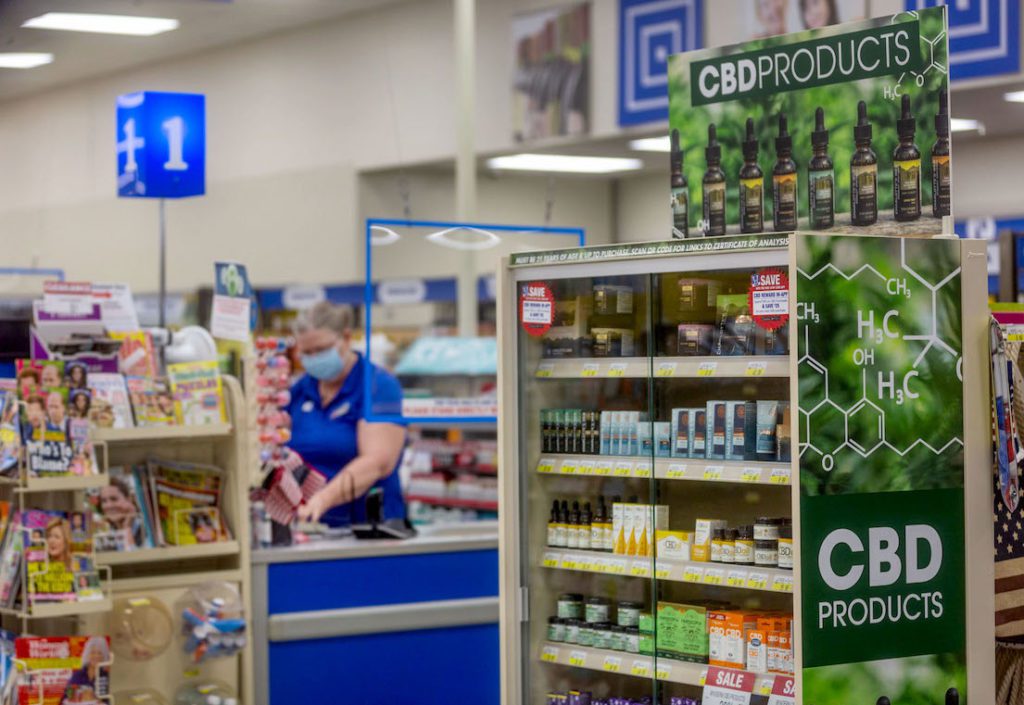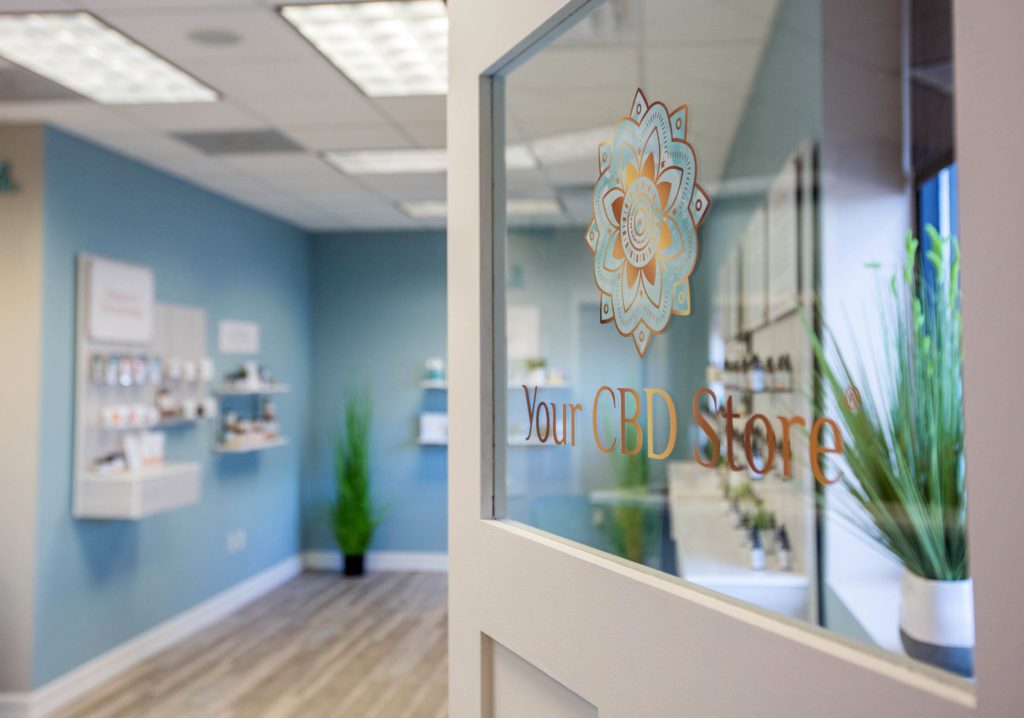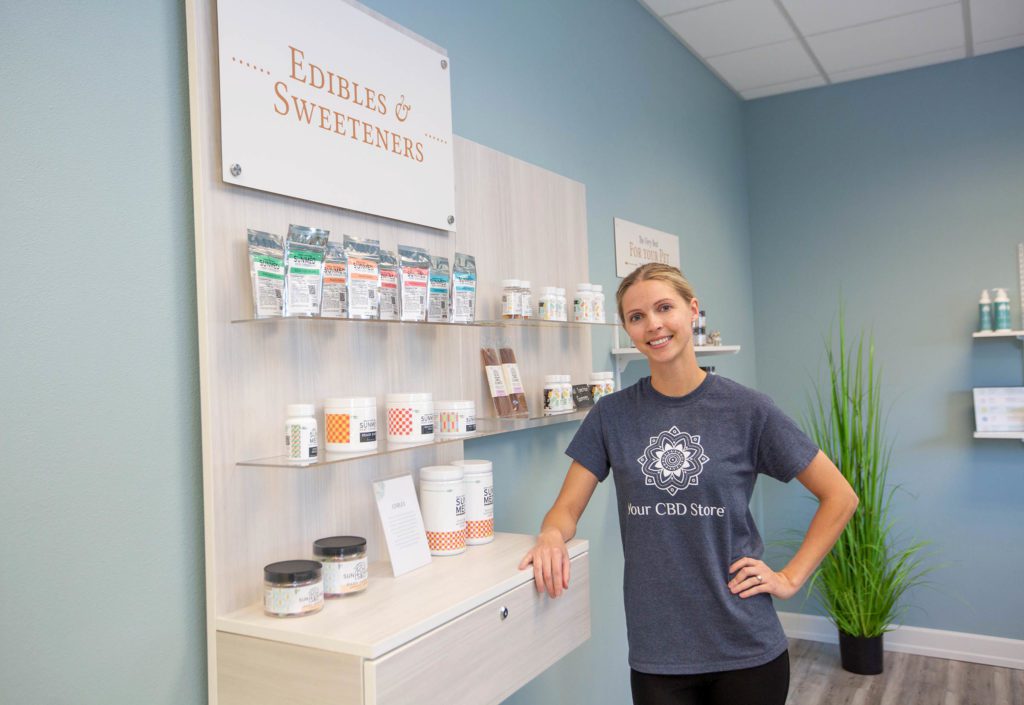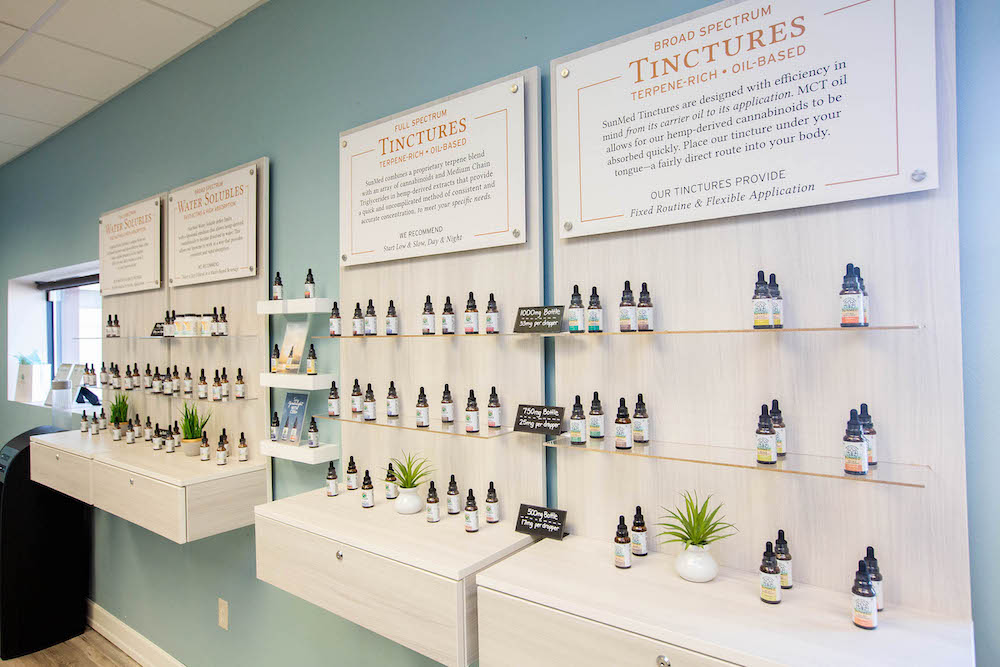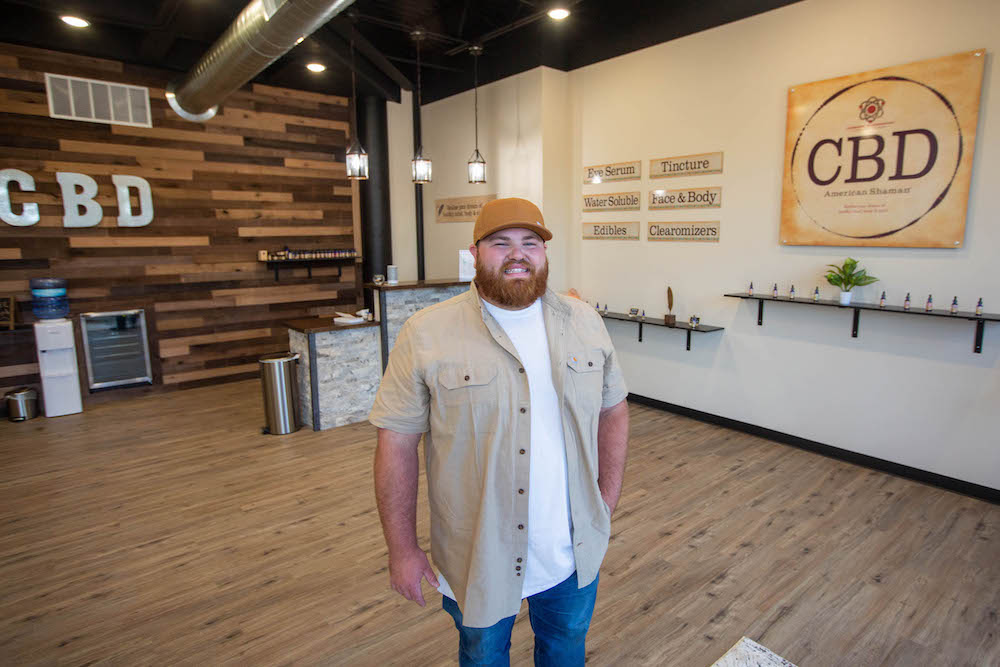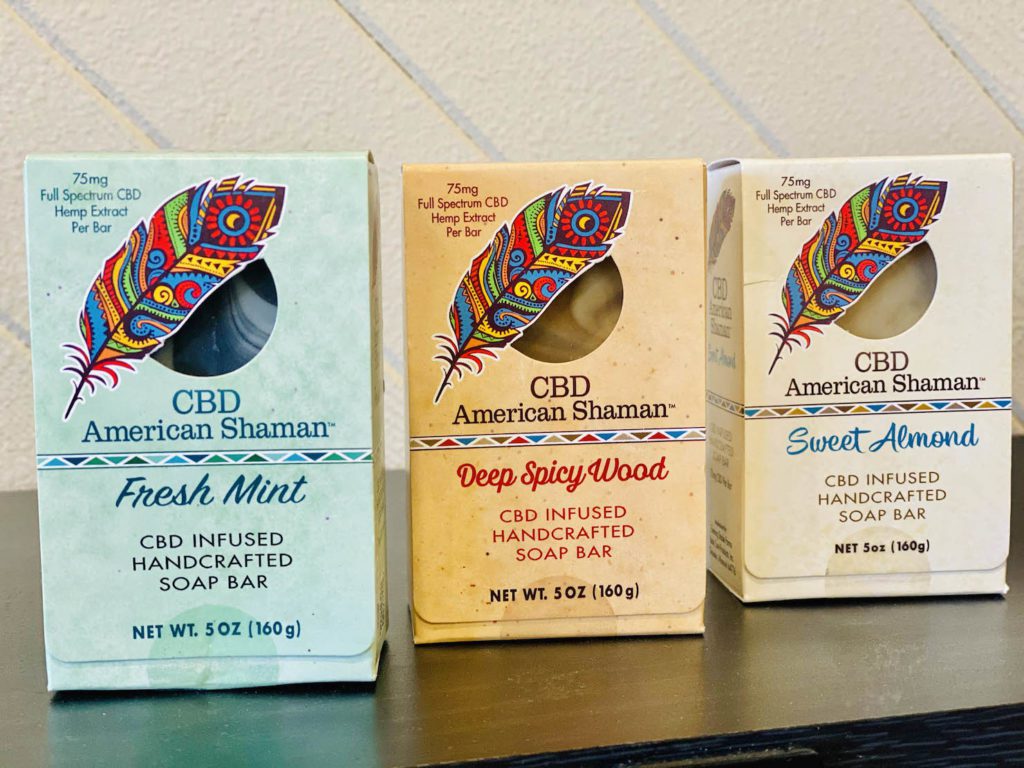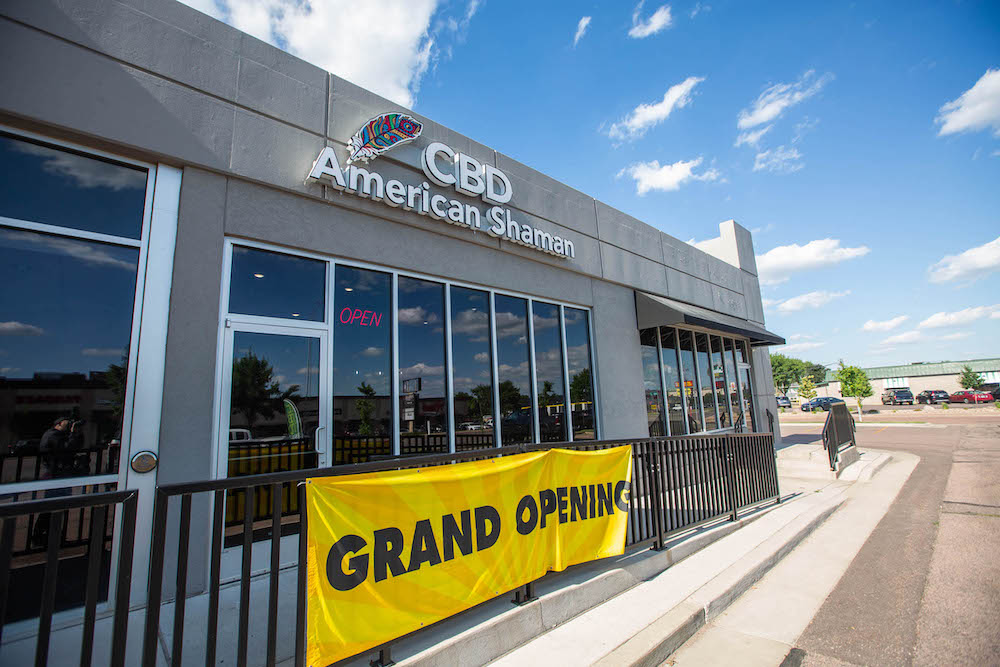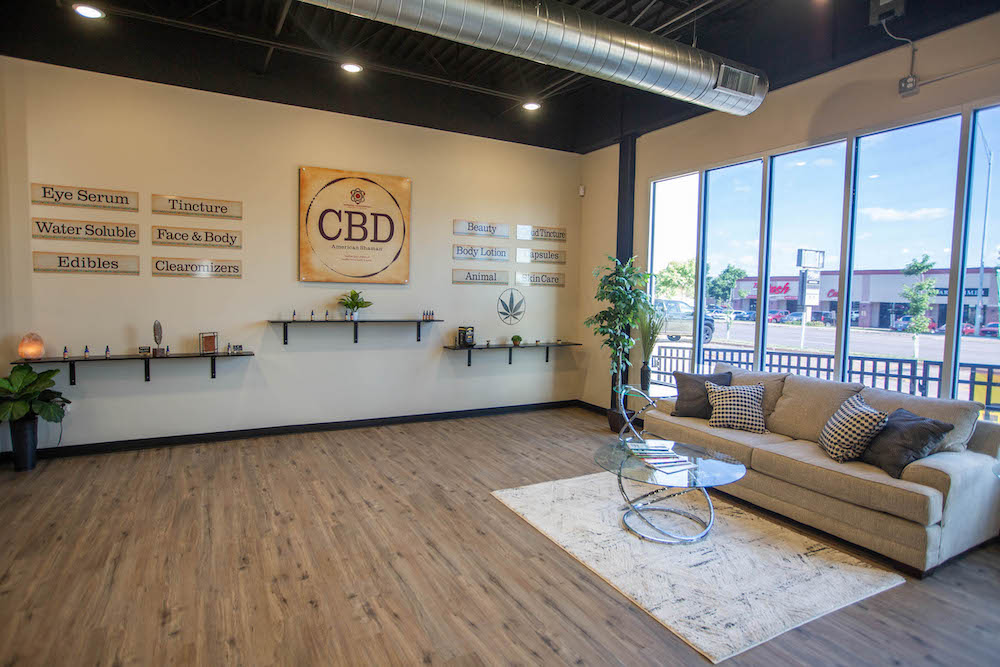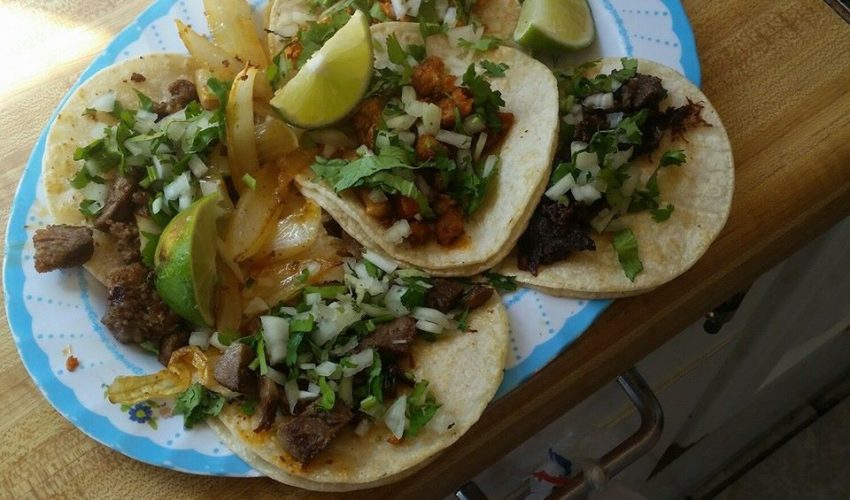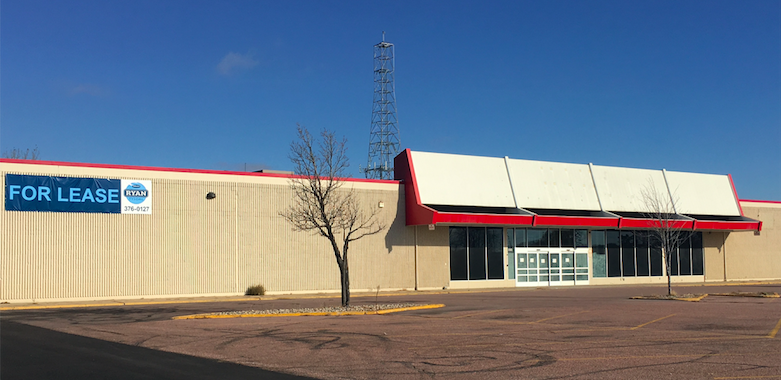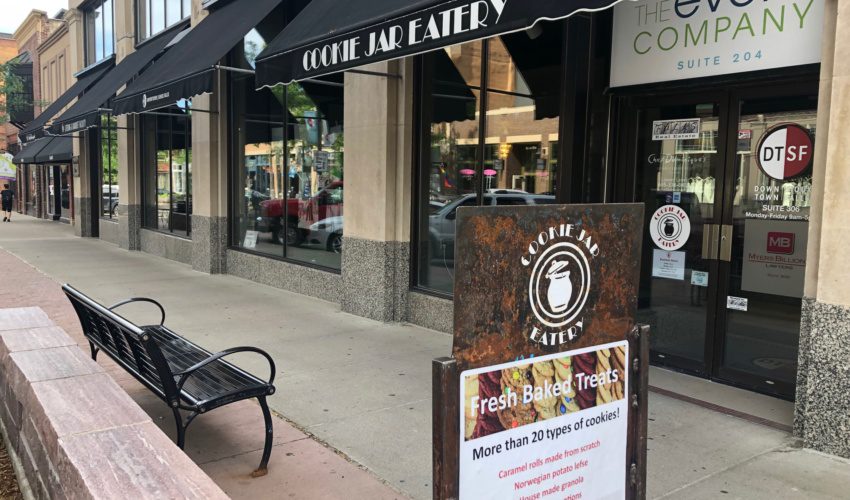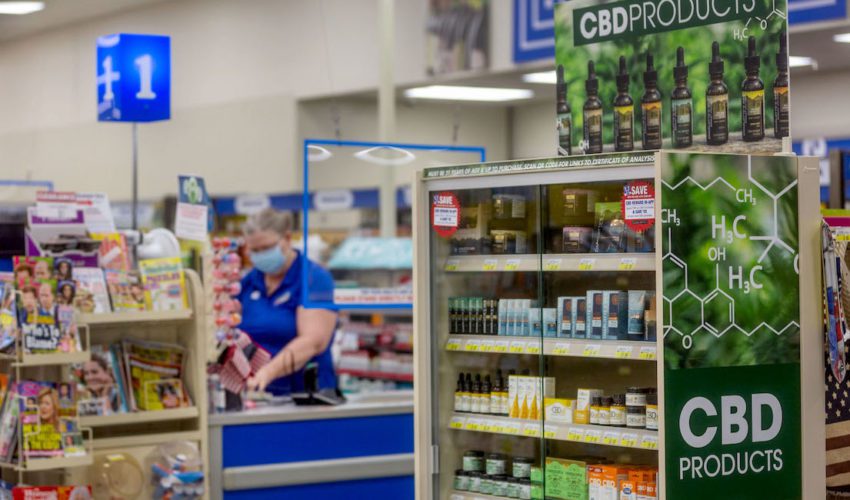CBD goes mainstream as major retailers, new businesses begin offering products
July 6, 2020
By John Hult, for SiouxFalls.Business
Here’s a symbol of how big the emerging CBD industry could be: At Lewis Drug, sales of the products doubled from the first week to the second week they were carried and nearly tripled by the third week.
“This could be comparable to a pet category,” said Bob Meyer, senior vice president of merchandise and marketing. “It’s big.”
Political opposition from Gov. Kristi Noem put a yearlong hold on South Dakota’s retail market for products derived from hemp-derived cannabidiol, or CBD, but business owners have rushed to fill the void in the three short months since Noem’s signature on hemp legislation in late March cleared the path.
Two CBD specialty retailers have opened franchise storefronts in Sioux Falls so far: Your CBD Store at 41st Street and West Avenue and American Shaman at 41st and Garfield Avenue. Each will open a second location over the summer.
The dedicated shops for CBD tinctures in oil and water-soluble varieties, ingestible gummies and creams have sprung up alongside the appearance of CBD products on the shelves of Sioux Falls stores such as Lewis and Walgreens, as well as smoke and vape shops and gas stations.
Lewis spent 18 months researching the industry, attending conferences, talking to suppliers and corresponding with retailers in other states that were selling CBD products already.
“Last August (at a trade show), we were sitting through a presentation … and at that time there were 1,400 companies trying to sell products in the U.S., but there are less than 100 legitimate companies you can trust,” Meyer said.
Lewis settled on products from 10 companies, carrying about eight to 10 items from each, including topicals and ingestibles. They include a QR code consumers can scan to learn about active ingredients.
Sales started in April, as soon as the state allowed.
“We wanted to get into it as soon as possible,” Meyer said. “We knew there was demand. We had people asking about it.”
The demand and potential profit from the burgeoning retail business are difficult to overstate. Chicago-based market research firm The Brightfield Group notes that the CBD market was worth $580 million in 2019, up from $44 million in 2018. It estimates a $22 billion U.S. retail market for CBD products by 2025.
The big jump is largely the result of the 2018 Farm Bill, signed by President Donald Trump in December of that year, which moved hemp from a controlled substance to an agricultural commodity, according to Virginia Lee, CBD research manager for Brightfield.
“That made a lot of companies and consumers comfortable with the idea of hemp-derived CBD,” Lee said. “That legitimized it. And then last year, select Walgreens and CVS stores began carrying CBD products in a topical format.”
Curiosity from consumers is a major driver, as is word of mouth on the supposed value of CBD as a treatment for anxiety, joint pain, sleeplessness and a host of other health issues. But there’s another factor that sets CBD apart from more well-known types of alternative remedies such as ginseng or echinacea, Lee said: versatility.
Processed CBD is odorless, tasteless and colorless. In addition to pills and tinctures, it can be added to candies, moisturizers, teas, toothpastes, lip balms, deodorants, cosmetics and even pet food.
“There are CBD pillows sold at Bed, Bath & Beyond,” Lee said.
Two more CBD shops in Sioux Falls by late summer
The growth in consumer demand between the Farm Bill’s federal legalization and Noem’s blessing this spring has put Sioux Falls retailers in rapid expansion mode.
Matt Yde, who opened his first Your CBD Store in Sioux Falls in late April after launching a Fargo store last year, already has an east-side shop in the works at 26th Street and Sycamore Avenue. The sister store plans a mid-July opening.
“We have so many people from Iowa, Minnesota and the east side of Sioux Falls coming in,” Yde said.
“It’s 50 percent because we have a lot of customers coming from over there, and it’s 50 percent that we know somebody else is going to open up over there sooner or later.”
Education on emergent products, high-end proprietary versions of those products with accurate labels and links to their chemical makeup, and personal interaction are what make specialty shops unique, Yde said.
Larger stores and smoke shops may have CBD, Yde said, but his employees can offer guidance to curious consumers and build relationships. Weekly meetings with corporate managers and access to information from a company chemist make for a well-trained sales force that can function more like consultants than clerks, he said.
A specialty shop is the place to start if a customer wants to know the differences between “full spectrum” products — those with trace amounts of the intoxicating tetrahydrocannabinol, or THC, found in hemp’s cannabis cousin — and “broad spectrum” products with isolated CBD, Yde said.
“Everything about the franchise was really appealing to me,” said Yde, who was turned off by the lack of information at the smoke shop he visited more than a year ago to inquire about CBD as a possible remedy for knee pain. “The goal wasn’t just to sell a bunch of CBD. It was all based on education.”
Marcus Schoepp is one of the three Sioux Falls entrepreneurs behind the American Shaman franchise location that opened June 24 at 41st and Garfield. Like Yde, the group launched its first stores out of state, in both Fargo and Norfolk, Neb.
A fourth location will open in The Cascade near Falls Park in July, Schoepp said.
American Shaman shops use proprietary nanotechnology-based blends as a selling point. The QR codes that link buyers to the results of a product’s federally required chemical testing are especially important for curious consumers trying out CBD for the first time, he said.
“You can only have 0.3 percent THC by law, and a lot of (lower end) CBD has been testing hot, which then puts you at risk for failed drug tests,” Schoepp said.
American Shaman aims to set itself apart with the extent of its product line. There are brownies, cosmetics, pet supplements and more on the shelves.
“We’ve got a little bit of everything,” he said.
At Lewis, where the products are in 21 stores and eventually will be rolled out to all as laws allow, education also has been emphasized.
Managers and pharmacists have been trained and continue to learn about the products. Customers who are seeing a physician for any particular issue or on certain medications automatically are referred to pharmacy staff to check for potential interactions, Meyer said.
“We’re trying to get all our pharmacists trained and behind it. They were hesitant at first because they didn’t know a lot about it,” he said, adding that after training and some of them trying the products, “a lot of them are very excited about it. Some have experienced it within their own families where there’s been help or relief in certain situations that has allowed them to be more confident. The more they’re learning they’re becoming more comfortable working with the guest.”
Lewis emphasizes it’s “not a cure or fix-all, but it’s helping different people with different things,” said category manager Tiffany McQuisten.
“I think people are looking for that different, more natural alternative to over-the-counter medication. It helps people to relax. It supports more sleep, things like that, things people would normally turn to drugs or chemicals you can get over the counter. That’s the biggest selling point.”
As retail thrives, hemp cultivators face market struggles
The retail sector is booming, but a bottleneck has emerged on the hemp biomass side of the business. As a result, the notion of hemp as a moneymaker for farmers — a primary selling point for the South Dakota bill’s backers — has yet to materialize.
The 2018 Farm Bill encouraged farmers to plant so many acres that the market for hemp flooded and led to a precipitous drop in prices. A lack of refining capacity in most areas of the country and a patchwork of state laws that made transporting product to refiners across state lines a dicey legal proposition have compounded the troubles.
Sean McFarland, who manages Blackshire Farms near Luverne, Minn., was among the farmers who jumped at the opportunity to grow hemp in 2019. With prices stuck in the gutter, however, the Blackshire crop is dried, baled and stored until the situation improves.
“Dealing with the current market, we’re not even trying to sell it,” McFarland said. “The prices were astronomical last year. That’s why so many farmers were trying it. We thought we could do some hard work and make a profit. But we would lose money if we tried to sell hemp right now. The price to the farmer is about 6 percent of what it was last year.”
South Dakota Farmers Union President Doug Sombke supported the state’s hemp bill, but he’s not especially surprised at the slow start.
“We knew going forward that it wasn’t going to be a silver bullet, but we didn’t see any reason to be against it,” Sombke said.
Sombke has seen plenty of new agricultural opportunities come and go in response to retail demand, from buffalo and ostrich to Jerusalem artichokes and now hemp. But aside from opening up opportunities for a handful of producers, Sombke said, they haven’t moved the needle for the larger community the way that ethanol did for corn.
Farmers don’t set prices for their products, after all.
“It might be a niche for somebody, but what we really need is more control over our prices,” he said. “We need to be able to control our inventory.”
Retail prices for CBD unlikely to remain high
Brightfield’s Lee agrees that it will be a long time before hemp becomes a commodity like corn or soybeans and doubts that hemp producers will reap benefits on the level of CBD specialty retailers.
“What I hear often is ‘don’t bet the farm on hemp,’ ” Lee said. “The hemp farmers, unfortunately, are not looking at the kind of windfall they’d expected.”
Even so, the plummeting price of biomass and the impact of COVID-19 across multiple sectors are likely to push prices lower for consumers. Premium CBD products can be prohibitively expensive, but many companies have hinted at plans to drop prices. Others have extended 24-hour online flash sales for multiple days. One company, Charlotte’s Web, announced a 15 percent to 20 percent price drop across the board during a recent earnings call.
Rewards programs are common at specialty shops, and Lewis Drug stores have a similar offering.
Yde and Schoepp both pointed to innovation and forward-thinking as key to retailers who aim to survive and thrive in the evolving CBD business. They also see more attention from the FDA as an important step for boosting consumer confidence. Currently, CBD products cannot be marketed using outright health claims.
“With the government accepting CBD businesses as legal, I would hope they would come in with some FDA studies shortly to show what these products can be used for,” Schoepp said.
Regardless, the consumer seems to be deciding already that the category will keep growing, Meyer said. Data from other retailers shows that in the longer term, the best-selling items are usually the larger and most expensive bottles, he said.
“Because people say, ‘I know this works, and I’m going to use it,’ ” he said. “As word gets out, it keeps growing and growing and growing, and I have not had any negative feedback. It’s all been positive and people just excited we have it.”

